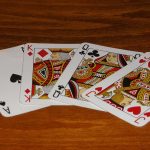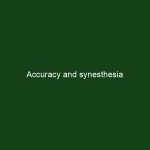There is a trade-off between innovation and persistence that I see in my recent work. The innovation comes in form of new exciting opportunities. Out of the blue [there is actually a lot of work and planning around it, I will describe in separate posts] I generate interesting ideas, or I am approached by exciting …
Healthy lifestyle
Occasionally we discuss various aspects of healthy lifestyle and try to generate a list of simple advices. This post is once again addressing this subject from a different angle. Below there are several ways to transform bad habits into good habits. Effects of lifestyle Your lifestyle may boost your brainpower or hurt your memory. The …
Elite performers practice wisely: monitor yourself
Today I was approached by a student who did not use pomodoro technique. He practices too intensely, without breaks, more than 2 hours a day. As a result he suffered eye strain and could not read for a couple of months. Now he feels great, and he makes sure to follow the proposed methodology. His …
Continue reading “Elite performers practice wisely: monitor yourself”
Good and bad multitasking when reading
Some of our students point to Eyal Ophir’s work to demonstrate that multitasking is bad. While we do not argue with dangers of bad multitasking, we provide several concepts and training exercises that reduce the damage caused my multitasking. There is a big difference between true multitasking (e.g. dealing with several issues at the same …
Stress and productivity
Many of our students report strong ups and downs of their cognitive abilities. These variations may be attributed to several factors, one of this factors being stress. It has been shown that stress, especially chronic stress, reduces cognitive functions, including ability to remember things properly. For a superlearner this may well be a vicious cycle. …
How to use negative time: saccade masking and microsleep
Managing pauses when we learn is an important skill nobody talks about. Below is a recommended superlearner strategy inspired by a discussion on our udemy course. Recently there was a very discussion on udemy (below) regarding small pauses we have when we learn. My personal opinion that we should use these pauses as one would …
Continue reading “How to use negative time: saccade masking and microsleep”
When you should read slowly
When you mastered speedreading, slow reading is not an easy task. We describe the reasons for slow reading, the difficulties that rise when reading slowly and how to deal with them. Recently I read an article on reading slowly. Reading slowly is a hard task for superlearner. Suddenly you have all this time and nothing …
Card exercise equivalent
If you need to do the “card” exercise on your computer, this is a valid alternative. Please move your mouse over the greenish bar to progress through the text. The larger the distance between blue and red line the faster the text goes… If the blue line is above the red line, the text stops. …
Accuracy and synesthesia
Comparing texts visually is difficult. We call upon synesthesia to help us. Each number/letter gets its own colour. Go ahead and find the differences! There is a good chance that after a while the number/colour or letter/colour association will become stronger and you will remember numbers like Daniel Tammet.
From C to A in 5 days
Every student wants to have good grades. Every parent wants his child to be A+ students without loosing creativity and joyfulness. In this blog we plan to give some insights on how this can be done. This article is probably the first in series of planned posts that will be generated as we prepare materials …




